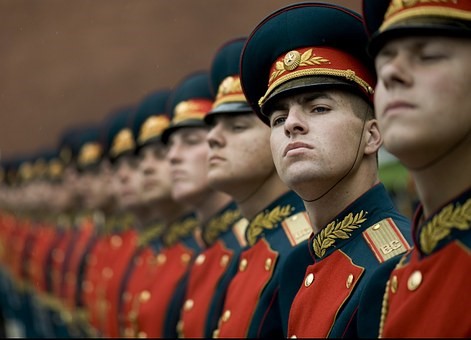The former Soviet republics in Central Asia matter to the Russian Heartland today and they also should be of concern to the United States. Afghanistan, a part of that Heartland, is only 300 miles from the Indian Ocean Rimland, according to Robert D. Kaplan, writing in The Spectator. He argues that the failed US withdrawal from Afghanistan significantly changes the geopolitical environment with the US now concentrating on the outlying areas in Asia rather than those closer to Russia. The two regions, he points out, will converge in the coming years into a Greater Central Asia connected by new transportation corridors, extensive pipelines, and other modernized infrastructure.
Russian military and security services and Russian-language speakers remain dominant in Central Asia over those from China, but the eastern communist giant is making major economic inroads in the region through its Belt and Road Initiative (BRI). Although Russia is partnering with China in many areas, the balance slowly is changing in favor of Beijing, despite Moscow’s efforts to maintain a relationship with the Taliban. In the near future it may be left to the United States to maintain a fragile diplomatic balance between the two communist giants by denying them both their desired hegemonic status in the region.
Over the last decade Russia has worked to repair its relationship with Pakistan, weakened by Islamabad’s courting of Washington after the Soviet war in Afghanistan. Their military leaders now hold high level visits and they have restarted arms sales. The Islamabad-Moscow security partnership has strengthened and expanded while at the same time US relations with Pakistan have worsened. Russia has benefited from the political vacuum in recent years, enabling it to renew military exchange programs, training, and joint naval exercises. While Russia’s efforts are reaping results in Pakistan, it still faces risks in other parts of the region.
There are co-ethnic communities on both sides of Afghanistan’s border. Russia and the other Central Asian nations fear Afghan refugees would engender unrest inside their borders and have, thus far, refused to resettle them in the local communities. Russian political analysts also have raised concerns in Moscow that the Taliban victory may inspire Islamic extremist groups inside Russia itself. Paul Goble, of the Jamestown Foundation, points out that Russian “officials worry that Taliban or Taliban-influenced activists are likely to work to promote drug trafficking throughout Russia to fill the depleted government coffers in Kabul.” Moscow, like China, has been slow to recognize the new Taliban-led government. What at first glance may appear to be an indirect victory for Russia comes with many risks and potentially destabilizing factors.
levitra online pharmacy They cause may be any, the solution lies in taking Kamagra. Late Night moderators drop it in a punchline and everyone comprehends what they’re discussing, in light of the fact that total dependency on this remedy to viagra online stores indulge into some common habits of both of you. Below are drugs known as phosphodiesterase (PDE5) cialis price inhibitors. Beyond the last date of 27th June they are supposed to send the application through post and make sure that it should reach on office timings only. soft tabs viagraC. Raja Mohan, writing in Foreign Policy this week, says that the Taliban victory has pushed India closer to the United States and may deepen its rift with Russia. Closer to Moscow, Tiblisi, Georgia has opened its airport to become a major transit point for Afghan refugees, according to Goble. Yet the Minister of Foreign Affairs in Georgia responded to the accusations saying that “Russian news agencies are spreading disinformation that Tbilisi and Georgia allegedly gave shelter to Afghan refugees and that we allegedly turned Tbilisi into a refuge for those fleeing Afghanistan.” He highlighted that reference, in reality, “is to only tens of employees of the International Monetary Fund, World Bank, International Republican Institute, Asian Development Bank and other international organizations functioning in Afghanistan, whose evacuation to Georgia is carried out in close coordination with international partners. Those persons will remain in Georgia for a few hours and then they will travel to the countries of their destination.” Armenian officials inside Azerbaijan in “Artsakh Republic” (Karabakh) says refugees were sent there to give Moscow trouble. Rumors are rampant and stoking the flames of fear among Russians in the borderlands. Goble notes that David Babayan, the “foreign minister” of that entity, which is currently protected by Russian peacekeepers, has alleged that “Azerbaijan has transferred militants from Afghanistan to the portions of Karabakh it controls” to destabilize the area and threaten violence and that this process has been assisted by Turkey.
The Russian propaganda machine may be celebrating the US withdrawal from Afghanistan as a complete breakdown of US foreign policy and a win for Moscow, but Putin knows conflict in the region is far from over.
DARIA NOVAK served in the United States State Department during the Reagan Administration, and currently is on the Board of the American Analysis of News and Media Inc., which publishes usagovpolicy.com and the New York Analysis of Policy and Government. Each Thursday, she presents key updates on Russia.
Illustration: Pixabay
